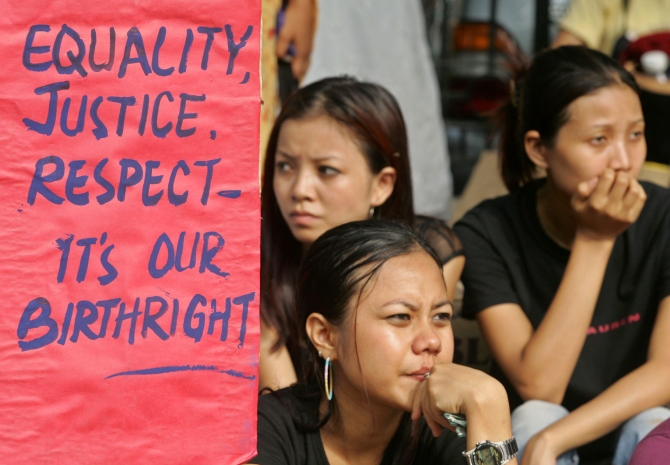In 2017, a group of Manipuri students were denied entry to the Taj Mahal by CISF personnel who stated that they “resembled foreigners.” They were allegedly asked to produce proof of their nationality. They were refused entry even after they produced ID cards and proved that they were on an all-India educational trip.
Another time, students from the North East were discriminated against during a visit to Delhi’s Jama Masjid. While other visitors were permitted to carry their phones without having to pay anything, these students were charged an amount of Rs 300.
Around two years ago, a North Eastern woman alleged that an immigration officer humiliated her with racist remarks and asked her if she was Indian.
India has a deep-rooted racism problem, but it’s difficult to talk about it because there isn’t enough research, analysis or documentation of racist discrimination in the country. The main exception to this is the 2014 Bezbaruah committee report, which was formed after a student from Arunachal Pradesh was killed in an allegedly racially motivated attack in Delhi. The report found that the “most common demand” was to make racial slurs a punishable offence.
The report also recommended a fine as well as a five-year imprisonment for people found guilty of racism.
Then in October 2016, with a nudge from the Supreme Court (SC), the home ministry released a set of proposals aimed at protecting people from the North East from racist attacks and discrimination. However, while the SC endorsed the government’s initiative, it also observed that existing law enforcement structures are not enough to tackle racial discrimination.
The regulatory mechanism proposed by the Bezbaruah committee needs to be incorporated into our legal system as soon as possible. People’s mindsets must undergo a drastic change if we want to eradicate racism from Indian society. Presently, the government doesn’t collect any data on the incidence of racial attacks in the country.
Apart from tackling actual physical harm, it’s equally important to criminalise the usage of words, signs and gestures which are racially discriminatory in nature. It is high time that India acknowledges that those who belong to the North East are just as much Indian as the rest of its citizens.
It’s imperative that derogatory remarks directed at people from the North East be deemed a punishable offence. The law ministry had earlier approved a proposal to add necessary clauses in the Criminal Law (Amendment) Act, 2014 to deal with racial discrimination. And setting up fast-track courts will ensure a speedy trials. There’s a lot we can do to outlaw racism, however, inexplicably, we haven’t yet.
Much of this racism stems from ignorance about the different ethno-racial groups that comprise India. Daily life and regular activities like walking down the street become demanding and stressful when you’re constantly subjected to casual racism and nobody even realises that it’s wrong. It’s imperative to create awareness and sensitivity towards diversity. There’s lots to be done, but if we must start somewhere, let’s start with strict anti-racism legislation. If we want to eradicate racism, then both rules and mindsets need to change.
Anshritha Rai is a fourth-year-student at ILS Law College.

